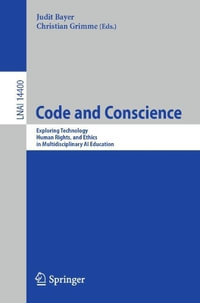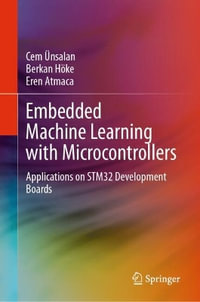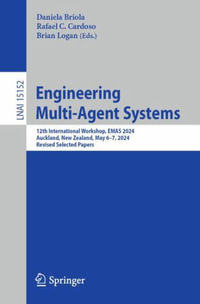
Mathematical Foundations of Computer Science 1986
12th Symposium held at Bratislava, Czechoslovakia, August 25-29, 1986. Proceedings
By: Jozef Gruska (Editor), Branislav Rovan (Editor), Juraj Wiedermann (Editor)
Paperback | 1 August 1986
At a Glance
Paperback
$187.31
Aims to ship in 7 to 10 business days
ISBN: 9783540167839
ISBN-10: 3540167838
Series: Lecture Notes in Computer Science
Published: 1st August 1986
Format: Paperback
Language: English
Number of Pages: 668
Audience: General Adult
Publisher: Springer Nature B.V.
Country of Publication: DE
Dimensions (cm): 23.39 x 15.6 x 3.4
Weight (kg): 0.92
Shipping
| Standard Shipping | Express Shipping | |
|---|---|---|
| Metro postcodes: | $9.99 | $14.95 |
| Regional postcodes: | $9.99 | $14.95 |
| Rural postcodes: | $9.99 | $14.95 |
How to return your order
At Booktopia, we offer hassle-free returns in accordance with our returns policy. If you wish to return an item, please get in touch with Booktopia Customer Care.
Additional postage charges may be applicable.
Defective items
If there is a problem with any of the items received for your order then the Booktopia Customer Care team is ready to assist you.
For more info please visit our Help Centre.
You Can Find This Book In
This product is categorised by
- Non-FictionComputing & I.T.Computer ScienceComputer Architecture & Logic Design
- Non-FictionMathematicsMathematical FoundationMathematical Logic
- Non-FictionComputing & I.T.Computer Programming & Software DevelopmentObject-Oriented Programming or OOP
- Non-FictionComputing & I.T.Computer Programming & Software DevelopmentAlgorithms & Data Structures























